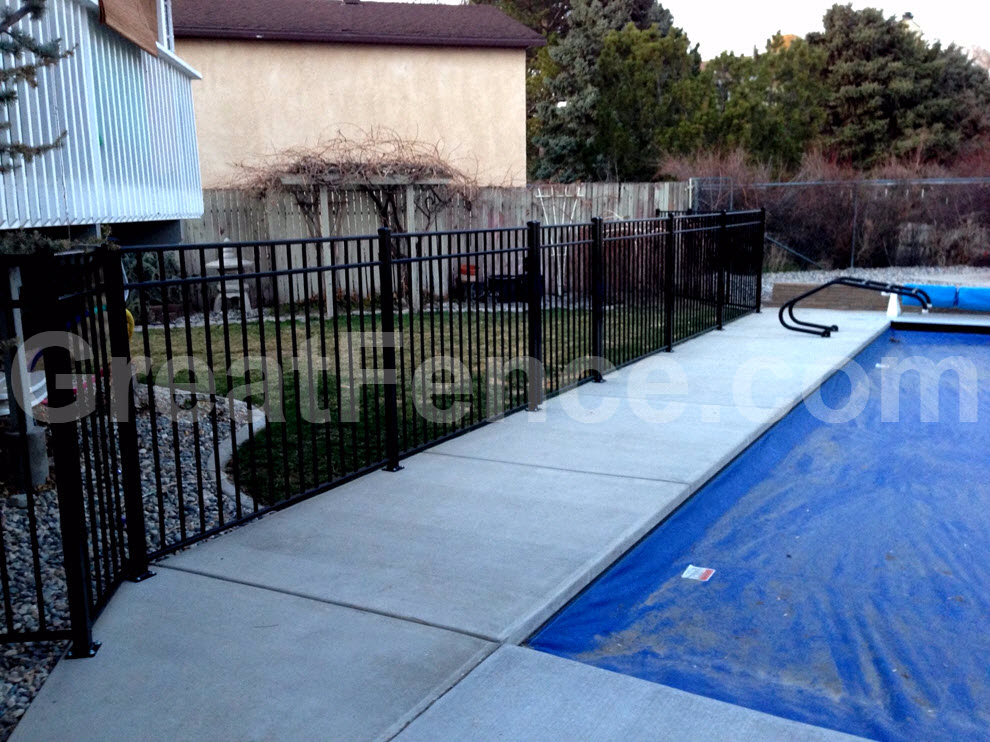Can Splashing Near Your Aluminum Fence Be Detrimental?
 Pool fences are a necessity around any residential or commercial pool, but what happens when the water is constantly hitting the fence pickets and panels?
Pool fences are a necessity around any residential or commercial pool, but what happens when the water is constantly hitting the fence pickets and panels?
There are plenty of reasons to splash around a pool, whether it’s children playing games or puppies taking their first leap into the inviting water. Whatever the origin of the splashing, it is good to know what your water type can do to your fencing material.
There are plenty of fencing materials to consider when planning a DIY pool fence, but some have qualities that really set them above the rest. Aluminum is a great choice for pool fencing thanks to the amazingly strong metal paired with its great durability throughout the years. Aluminum fencing panels also require very minimal upkeep thanks to the protective coating in a high-quality material.
You might be thinking that the easiest way around having any pool fence upkeep – however minimal – would be to avoid having a fence altogether. This is not an option in most places due to rules and regulations surrounding fencing. These rules and regulations are set by the town, and most places have very specific requirements, including the type of lock on the pool gate, the height of the fence, and the distance between and under the pickets. There may even be rules from your homeowner’s association regarding the color and style of the fence, so it is best to check with all these governing bodies before taking the aluminum pool fence plunge.
Protective coating
Before we get into the nitty gritty of how different pool water affects aluminum fencing, it’s important to note the amazing coating that comes standard on DIY pool fence panels. The powder coating does not detract from the beautiful style or look of the fence. It is already in place when you receive your panels, and it can withstand severe weather as well as reasonable wear and tear. This coating will help prevent your pool water from harming the metal within, as long as there are no scratches or dents in the fencing resulting in a break of this protective coating.
The effects of chlorine vs. salt water
In the past, all pools needed chlorine and other chemicals to keep the water clean and the swimmers safe. Nowadays, more and more people are taking the more natural route with pools filled with salt water that is somewhat similar to ocean water. Both of these water types can be detrimental to an uncoated piece of aluminum.
Chlorine is a chemical that, when left on an untreated piece of metal, can corrode the metal, which can create lasting damage visually and possibly to the structure as a whole. Salt can do the same thing to untreated or unprotected aluminum by beginning to corrode the metal. Thankfully, the protective powder coating stops any corrosion from occurring, whether the water is salty or full of chemicals. Giving your fence a good clean or at least a wipe-down every so often will help you notice any scratches in the surface of this important coating.
Whether it’s chlorinated to naturally salty, the water of your pool does have the potential to create damage to any type of fence. Your best bet would be to stick with aluminum thanks to its wonderfully protective powder coating and the strong metal. With such a durable material, your fence will be safe from damaging splashing while also keeping those doing the splashing safe.